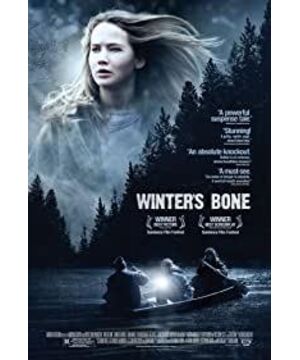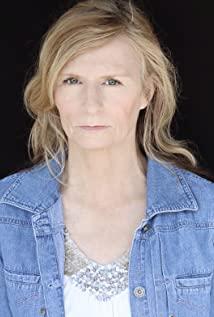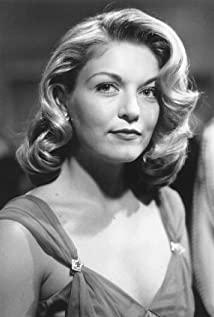These examples tell us that even after thousands of years of patriarchal society, women still play the role of bond in family relations. When we visited, they piled up kindly smiling faces, served hot tea and sweets; when we were celebrating, they carefully selected gifts to send blessings on behalf of their small family; compared to them Husbands, they are better at talking and showing sympathy, so they communicate with their relatives more frequently; at the same time, they are also better at being the provokers of trivial contradictions, but because of this, you can’t ignore their existence .
The movie "Bones of Winter" confirms my idea, even though most viewers will focus on how tough and precocious the 17-year-old heroine is-if so, then she is at best an American version. "A Lawsuit by Qiu Ju" and "No One Can Be Less". I think this is a feminist film. The director of the film, Debra Granik, is also a woman. Although this does not explain much, I think it is a good footnote.
"The Winter Bones" tells such a story. In the Ozark Mountains in southwestern Missouri in the United States, there are still some villagers living simple and primitive lives. These villagers live in groups according to blood relationship. The people in the whole village have the same surname and are relatives. -It can be said that this is a patrilineal clan, women are engaged in housework, and family livelihoods mainly come from men, and men make a living by manufacturing drugs. The protagonist of the story, 17-year-old girl Ree, his father is one of them. After being arrested for making drugs, Ree's father mortgaged their house to be released on bail, but he disappeared during his release. Ree, who raised his crazy mother and two young siblings alone, is determined to find his father, or the father's body, in order to keep the house they depend on for survival.
In this regard, the characters in the movie can be divided into two groups according to gender. The posture of the male group is basically presented in profile-in order to find the whereabouts of his father, Ree went to see a series of people, all of whom were male. However, it is interesting to note that these men are unwilling to have direct contact with Ree. In other words, Ree went to see these men, and those who "blocked" these men, and those who were presented in front of Ree and the audience were all women.
Compared with those men, the status of these women is low. ——Ree first asked her good friend. She wanted to ask her friend’s husband to borrow a truck so that she could find her father along the Arkansas highway. But the friend brought the child at home. After hearing Ree’s request, she said she wanted to ask her husband. The husband rejected Ree, and his wife was not allowed to ask why. Ree said angrily: "I really feel sad for you. He doesn't know what to do, you are not so." The friend retorted: "When you get married, everything will be different."-This argument was later on Ree It has been confirmed many times on the other people who have asked for it. Those men, when dealing with Ree, who is an insignificant female and minor, have found the women behind them to be their megaphones or accomplices without exception, and these women are also willing to act as men’s megaphones and violent against Ree. Stand by when threatening, or directly threaten Ree with violence.
There is another reason why women act as a microphone to deal with Ree. Although Ree is insignificant in their eyes, they are relatives from the same family after all. Therefore, it is bound to be women who play the lubricating role in the huge mechanical system of the family. In fact, these women, while being controlled by men, are also exerting their own subjective initiative within a limited range. Although Ree's friend rejected Ree directly on behalf of her husband, she later drove the truck she needed for Ree. The third person Ree begged to meet-his father’s accomplice, Arthur, whose wife Megan had only met Ree at the party, but still privately provided Ree with valid information and asked her to go to the mountain to find Sam Milton-you can say Is the leader of the clan and the clan business (drug manufacturing). Even though Sam’s wife drove Ree harshly, she still gave her a glass of water when she drove her away. At the end of the story, it was Sam’s wife who led the female men and took Ree to find her father’s bones. ——Is this Sam’s meaning? The movie doesn’t seem to explain it. We can also understand that this is Sam’s wife’s personal behavior out of sympathy. Compared with men, women are more likely to show sympathy.
The recessive male group and the dominant female group are actually the results seen from the perspective of the protagonist Ree. The most extreme representative of the male community is Ree's father. This person has never appeared from beginning to end. In fact, he has experienced a thrilling journey from life to death that is stronger than anyone else in the movie. If the story behind this paragraph is unfolded, it will be a bizarre Western movie involving family vendettas. However, the film has repeatedly used Ree's mouth to emphasize: I don't care how my father died, who killed him, what happened, I just need to keep our house. Ree’s perspective is a feminist perspective. The wolves of the patriarchal world are actually insignificant in the eyes of women, backward and boring. The well-being at the moment is the most important, and this truth is not what men don’t. got it. And Ree is obviously more inclined to appeal to the female group he belongs to. Ree's mother is a lunatic, but when Ree is extremely collapsed, she still crying and begging her to take a look at her: "Just this time, can you help me? This time?"
Ree's path to find his father also symbolizes the awakening of feminist consciousness. The father’s accomplices and relatives came to Ree, and even coaxed the younger brother who wanted to adopt Ree. For Ree’s younger sister, they said that they would be able to adopt it again in the future. Ree angrily exploded the man's lies and refused to let him take his brother away. Taking away the younger brother meant that the male group wanted to further clarify their divisions, and wanted to continue the copper wall between men and women, which in Ree's view was completely unbearable. And Ree’s search for his father is also a feminist reflection on the patriarchal society. In the end, Ree found his father’s bones in the cold river with the help of the leader’s wife and his daughters. In the silent cry of extreme pain, Together with the leader's wife, he saw off his father's hands. ——The patriarchal society once gave women a blessing, so cutting off the past will also feel the pain and fear of the soul for women. However, the past must be cut off, or else they will not have the bright well-being of women in the future.
However, the feminism promoted by the film does not require women to overthrow men and then replace men and become men. In order to support his family, Ree had the idea of joining the army. However, during the interview with the military officer, she found that joining the army does not bring immediate benefits, and must be far away from the family, unable to fulfill the responsibility of raising her mother and younger siblings. So at the end of the film, Ree, who has kept the house, decided to give up joining the army and continue to live with his family. Joining the army symbolizes the integration and replacement of women into the male world. Obviously, the film discourages this (it is not discourage women from joining the army, but discourage women from trying to seek fish in the same way as men). Therefore, although this ending is a bit blunt, it is a meaningful topic-women should live with dignity, and at the same time women must fulfill their physiological and ethical social responsibilities, in a physiological and ethical manner.
View more about Winter's Bone reviews











